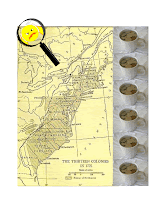After accepting the self-evident truths, we come to what I think is the most basic question. While truth is typically assumed by children, if we talk it to death perhaps we learn to question everything, including truth. So some ask:
- How can we know that anything is true?When this is asked, the person has most likely been taught “we cannot know truth” or “there is no such thing as truth”. Instead of challenging the idea, I recommend that you ask them a follow-up question like I did with my son’s sex question. You might ask, “What do you mean?” Listen to their answer, and then find out, “How did you come to that conclusion?” Again, listen. (Remember the mean face with covered ears and the magnifying glass.) If a different question or claim surfaces, move on to that question. Otherwise, understand that the statement form of this question is, “We cannot know truth.” In this case we might first ask them, “Is that true?”
Let’s talk about the claim that “we cannot know that anything is true”.
If it is true that “I cannot know anything is true”, then I can know something is true. What I know is true is that I cannot know anything is true. Oops! Do you see the problem? The argument “I cannot know truth” is self-defeating.
In his writings The Summa Theologica, Thomas Aquinas (1225-1274) put it this way,
- “The existence of truth is self-evident. For whoever denies the existence of truth [is saying] that truth does not exist: and, if truth does not exist, then the proposition ‘Truth does not exist’ is true: … [But] if there is anything true, there must be truth.”
So if someone claims that truth does not exist, then they are saying something is true. And if anything is true, then truth exists. In other words I could ask, “Is it true that truth does not exist?” If that is true, then truth exists. If that is not true, then the truth is that something is not true, and again, truth is proven to exist.
Of course all this doesn’t take a lot of talk to turn someone around. For instance: I was visiting with another friend’s son. Ryan had just completed his second year at college when he made the statement, “We can’t know that anything is true.” I immediately asked him, “Is that true?” He paused, looked directly in my eyes, and started to smile as it apparently dawned on him that he couldn’t answer my question without admitting that his own statement was false. He wagged his finger at me and said, “Ah, that’s good.” As I shook my head we both laughed.
With three words, one question, Ryan was faced with the fact that the question of truth’s existence can only be answered in one of two ways. Either: I can know truth; Or, I cannot know truth. Each is a truth claim. But according to the law of non-contradiction, both cannot be true at the same time in the same respect. Since the statements contradict each other, both could be false, but if one is true, the other must be false.
How can we know that anything is true?
We can know there is truth because contrary arguments are self-defeating.
Let me mention that one might hear the Pontius Pilate question, “What is truth?” A lot of people have a hard time defining truth. If they have that problem, ask the person to think about insanity. I heard Tom Dooley on The Journey radio program put it this way,
- “If your car broke down in the country and at the nearest farmhouse you encountered two men, one who insisted he was Napoleon and the other who said, ‘You’re not Napoleon, you’re Caesar Augustus. I should know, because I’m God and I made you.’ At that point you would likely be right to conclude you had just come across the local insane asylum.”
How do we define insanity? Insanity is the loss of touch with reality. The insane person believes a lie. We want them to believe the truth because the truth is what is real. So if someone asks the Pontius Pilate question, “What is truth?” We know the answer is, “Truth is what is real, because the definition of insanity is the loss of touch with reality.”

No comments:
Post a Comment